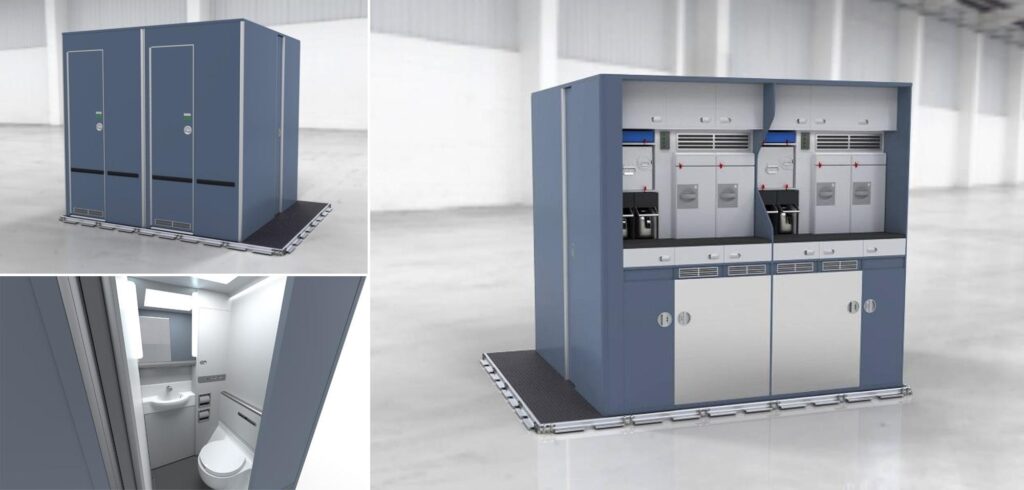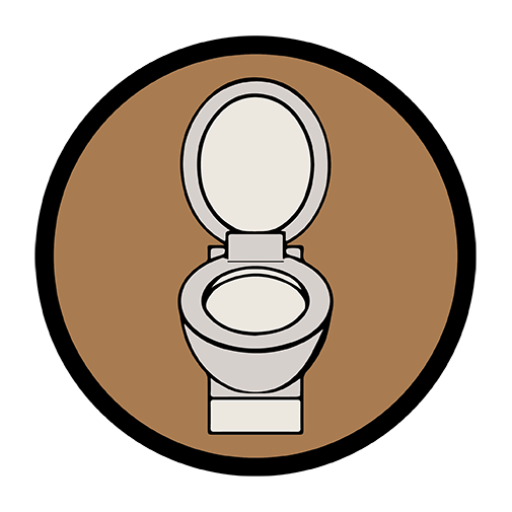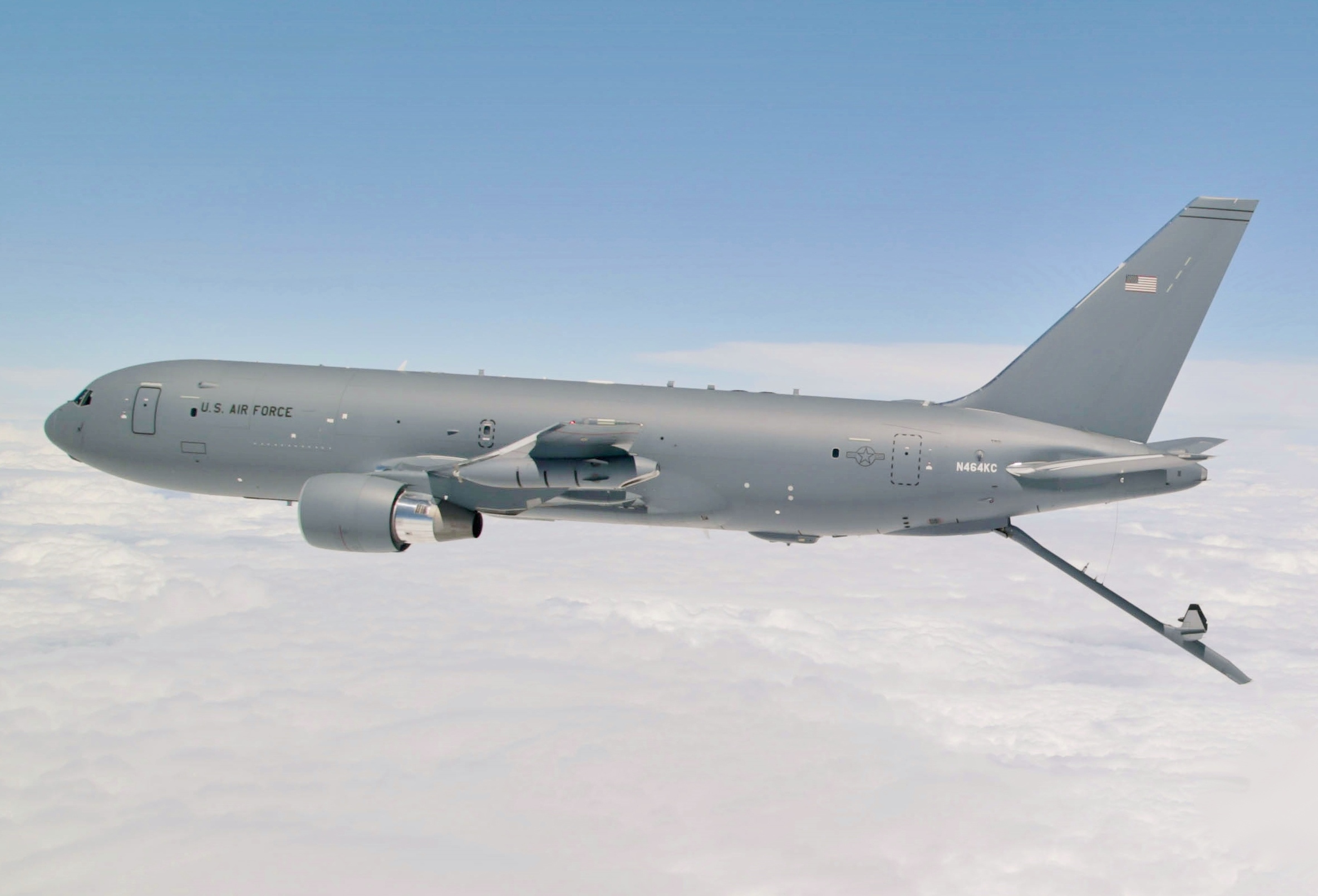A Transportable Galley Lavatory System for military cargo may have wastewater leaking
Collins Aerospace Systems and Knight Aerospace introduced an innovative roll-on/roll-off Air Transportable Galley Lavatory System (ATGL) for military cargo aircraft that makes it possible to rapidly replace costly-to-maintain systems with a modern solution that serves military personnel during long missions.
The new ATGL is a universal system that contains a full-service galley and two toilets on a customized pallet that can be loaded onboard any cargo aircraft, including the C-130, C-17, and KC-46, on either 108” or 88” directional bias.
The galley provides various customizable options since customers can decide between their preferred combination of refrigerators, coffee makers, ovens, and microwaves to pair with two toilets equipped with Collins’ advanced vacuum wastewater system and Agile toilet, increasing sanitary measures onboard the aircraft and eliminating the usage of blue water systems that rely on special service trucks to pump out waste after each flight. The pallet provides a robust, high-quality, durable platform for the lavatory and galley while also interfacing with the aircraft cargo handling system without the need for additional attachment points.

However, it has been found that the Boeing KC-46 tanker currently can’t carry this palletized toilet without the risk of wastewater leaking into the cabin, leaving the tanker unable to conduct long-distance flights with a large number of passengers until the lavatory is modified.
The problem arises because the ATGL cannot be loaded and stored in its normal orientation because the issue stems from the KC-46′s cargo rails and locks, which are not as wide as other Air Force cargo aircraft. Instead, the ATGL is turned 90° to fit inside a KC-46, but the lavatory system’s anti-spill valve doesn’t work correctly while in that orientation.
That could allow toilet waste to drip into the cabin whenever the tanker climbs or descends in altitude. Reportedly, the issue was discovered during ground testing and is not considered a technical deficiency against the KC-46 aircraft because the Air Force’s 2011 contract with Boeing did not forbid the company from delivering a tanker with a narrower cargo rail system. Ultimately, the Air Force intends to fix the issue by developing a new valve for the ATGL, but so far the service has not designed, tested, or fielded a replacement.
“The KC-46 program office plans to modify 6 ATGLs over the next 12 weeks to address the growing demand by the KC-46A enterprise as it begins limited operational use in support of U.S. Transportation Command taskings”, Lt. Emma Quirk said. “These 6 modified units will be evenly divided between McConnell [Air Force Base], Pease [Air National Guard Base], and Seymour Johnson AFB”.
The ATGL has been in service since the 1980s, Quirk added. It provides the space and power to furnish two meals and one snack for 160 people, as well as 2 toilets that can handle about 15 hours of use, according to the following Air Force instructional video about the system.
The KC-46 can still carry 112 passengers, even without the ATGL onboard. However, because the lavatory built into the KC-46 has a limited capacity, not having the option to add a palletized toilet system could make it more difficult for the Air Force to accomplish long-haul flights with many passengers on board.
Source defensenews.com

